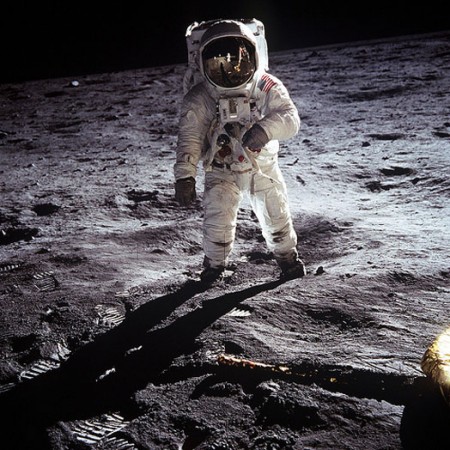December 30, 2015 – For my generation the Neil Armstrong, Buzz Aldrin landing on the Moon in July 1969 was the fulfillment of a dream born out of science fiction and technical acumen. A mere six decades after the first powered flight by the Wright brothers humans had achieved a Vernian dream. We were on our way to the stars. But after 1972 we stopped taking steps on the lunar surface and the human extra-planetary adventure beyond low-Earth orbit was moribund.
Today Russia, China and the European Space Agency are talking about reviving the dream, going back to the Moon. NASA talks about missions to cis-lunar space with a focus on going beyond to Mars. The Russians have announced plans for permanent presence on the Moon beginning in the next two decades. NASA speculates about a Mars expedition by the mid-2030s.
But what started off as a race to space fueled by Cold War politics no longer has a sense of urgency. After all the world is still trying to come to terms with getting the human-Earth balance right. We remain bound to the planet and the challenges of living here. So food, population, economics and climate change preempt space. The priorities of government spending don’t include the Moon or Mars. These latter two fit in the nice to have category of priorities and planning.
So we are about to enter 2016 and the Moon remains empty of humans. Will we get there in the next two decades? Will we go even further to touch down on another planet before mid-century? Will I be alive to see this?
I think the answer to all of these questions is yes. But it may not be governments that take the lead. It is more likely that the Moon and Mars will be settled through a combination of private and public partnership with the former taking an increasing role and financial burden because of the advantages derived in getting to these places.
When I think of Canada and how my country was formed it follows a pattern similar to what I am describing in the previous paragraphs. A version of Cold War politics in the 17th and 18th centuries brought the French and English to the northern half of North America where the two battled for supremacy. But a private charter company of the British Crown turned out to be the trailblazer for the Canadian nation. That was the Hudson Bay Company which was driven to harvest the enormous resources of the country for a return on investment. The Company established settlements throughout the Canadian northwest. These were outposts that learned through trial and error survival skills in a foreboding environment.
I expect private enterprise in going to the Moon and Mars will repeat the experience of the Hudson Bay Company. I expect that companies like Planetary Resources will be the trailblazers in learning to harvest the resources of space for a more than ample return on investment. And I believe that we will see space become far more accessible beginning as early as 2016.
Why? Because in the last two months we have seen demonstrations from private companies that getting to space can be affordable. The Space Shuttle cost a half billion dollars per mission. Talk about a loss leader. SpaceX and Blue Origin have no intentions of repeating the over-engineered costly endeavor that was NASA’s economic albatross. The leadership of these two companies, Elon Musk and Jeff Bezos, are entrepreneurs committed to driving down the cost of getting off the planet while at the same time they are driven by a mission not only to fulfill the unfulfilled dream post Neil Armstrong and Buzz Aldrin, but also to turn a profit.
There are lots of technical challenges remaining but these are all being worked on. We will find ways to go faster and further in space. We will grow potatoes on Mars. We will learn to harvest water from the Moon and Mars to support human settlements there. We will evolve 3D printing technologies to a point where we can fabricate almost anything we need in space and on the lunar and Martian surface. We will harvest near-Earth asteroids and fund new space ventures from the materials we find. We will build the complex space infrastructure that will serve us as way stations to get us to Mars and well beyond. We will learn to live off the land much the way the factors and staff of the early Hudson Bay Company settlements did here in Canada.
So as we come to the end of 2015 and look up at the Moon as it wanes to summon the New Year, my thoughts are about a future when people like me, from the lunar surface, will look back at Earth and contemplate the next steps for humankind.
Wishing all of my readers and contributors a very happy and healthy 2016.










